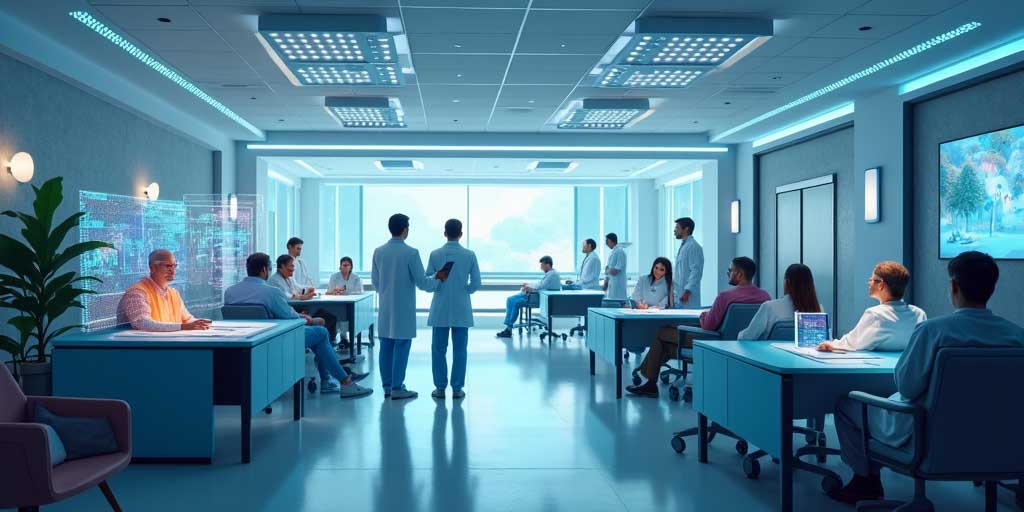2025’s Top Healthcare Trends: Revolutionizing the Future of Patient Care
The healthcare landscape is evolving at an unprecedented pace, driven by continuous advancements in technology, changes in patient expectations, and ongoing reforms in healthcare policies. As we look towards 2025, several emerging trends are set to revolutionize the future of patient care, enhancing efficiency, improving outcomes, and personalizing the patient experience. Here’s a comprehensive look at the top healthcare trends for 2025 that are shaping the future of the industry.
Integration of Artificial Intelligence
Artificial Intelligence (AI) is at the forefront of transforming healthcare. By 2025, AI will be more deeply integrated into various aspects of patient care. AI algorithms are becoming increasingly sophisticated at diagnosing diseases from imaging scans, predicting patient outcomes, and even suggesting treatment protocols. For instance, AI-driven tools like IBM Watson Health demonstrate how cognitive computing can analyze vast amounts of medical data to assist in clinical decision-making.
Moreover, AI is instrumental in operational efficiencies such as scheduling, patient flow management, and automated billing, which reduces administrative burdens and allows healthcare professionals to focus more on patient care.
Telemedicine and Digital Health
The COVID-19 pandemic accelerated the adoption of telemedicine, and by 2025, its capabilities will be significantly expanded. Telemedicine provides a convenient option for routine consultations, follow-ups, and management of chronic conditions, reducing the need for physical visits and thereby decreasing healthcare system congestion.
Digital health platforms will also offer more holistic services, integrating telehealth with remote monitoring and digital therapeutics. Wearables and other health monitoring devices will feed real-time health data back to providers, facilitating proactive management of patients’ health and early intervention in case of anomalies.
Personalized and Precision Medicine
The trend towards personalized medicine continues to grow, with treatments increasingly tailored to individual genetic profiles, lifestyle factors, and even social determinants of health. By 2025, we expect to see more widespread use of genomic testing to guide drug prescriptions and treatment plans, minimizing adverse reactions and improving treatment efficacy.
Precision medicine will also expand beyond oncology to other key areas such as cardiovascular disease, diabetes, and neurodegenerative disorders, offering hope for more targeted and effective interventions.
Expansion of the Internet of Medical Things (IoMT)
The Internet of Medical Things (IoMT) refers to the interconnected system of medical devices, software applications, and health systems and services. By 2025, IoMT will be crucial in the continuous monitoring and management of health conditions outside traditional clinical settings. Smart medical devices, capable of collecting vital data and communicating with healthcare providers in real-time, will become an integral part of chronic disease management and elderly care.
For example, smart inhalers for asthma patients can track usage and alert patients about potential environmental triggers in real-time, significantly improving quality of life and disease management.
Blockchain for Health Data Security
As digital health data proliferates, maintaining privacy and security becomes increasingly critical. Blockchain technology offers a promising solution by creating decentralized and tamper-proof data management systems. By 2025, blockchain could be widely used for secure patient data exchange between systems and stakeholders, ensuring privacy, enhancing data integrity, and reducing fraud.
Advancements in Robotic Surgery
Robotic surgery has been making waves in the healthcare field, and by 2025, these technologies will become even more advanced. Robots provide surgeons with enhanced precision, flexibility, and control, leading to fewer surgical complications and quicker patient recovery times. The evolution of robotic surgery involves greater automation and even remote surgery capabilities, allowing top specialists to perform surgery on patients in remote locations.
Mental Health Digital Platforms
Mental health continues to gain recognition as a critical aspect of overall health. By 2025, digital platforms offering mental health services will become more prevalent. These platforms provide therapy, support groups, and psychiatric services through smartphones and computers, making mental health care more accessible to those who may face barriers to traditional therapy settings.
Conclusion
The future of healthcare in 2025 is marked by technological innovation aimed at making healthcare more efficient, personalized, and accessible. From AI and telemedicine to precision medicine and IoMT, these technologies are setting the stage for a more patient-centered approach to healthcare. As these trends continue to evolve, they promise to significantly alter how healthcare providers deliver care and how patients engage with their own health management. The revolution in patient care is just beginning, and it promises a future where health services are more responsive to the needs of each individual patient.
